美国网友问:如何描述中国人的普遍心态,尤其面对外国人时?
美国网友提问,如何描述中国人的普遍心态,尤其面对外国人时?我们看看各国网友的回答。
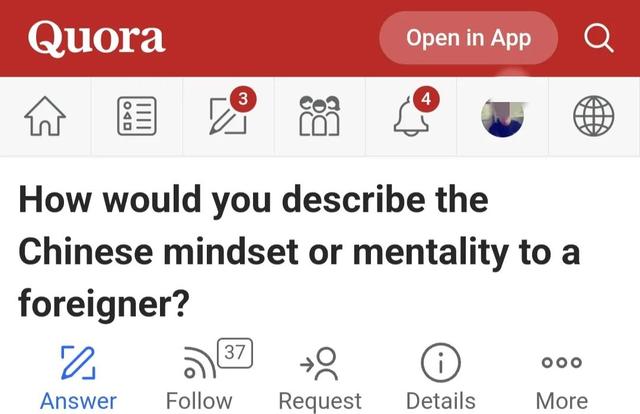

中国网友王佳明的回答
I'm sure some Chinese readers will see this question, because my answer is a little long, so I simply use Chinese thinking to express my thoughts.
我相信肯定有一些中国读者会看到这个问题,因为我的回答有些长,所以我干脆用中国人的思维表达一下我的想法。
Nowadays, many Chinese people are always talking about the human society, housing prices or all other bad habits in China. We can see more problems from other answers. I also admit that there are all these problems in China, but if most people think those problems are the main problems, this is what makes me most sad.
当今很多中国人总是在谈论人情社会,房价或者一切其他中国劣习的不好,从其他的答案中我们能看到更多的问题。我也承认这些问题中国都有,但是如果大部分人认为那些问题是主要问题,这才是令我最悲伤的地方。
I think the most sad problem in China is the lack of confidence and trust crisis.
我觉得目前中国最令我悲伤的问题是缺乏自信和信任危机。
Because of the rulers, China's modern history is not as brilliant as the Han and Tang dynasties. When China and Japan opened their doors, the confidence of Chinese people was destroyed. After the reform and opening up, the Chinese people have seen the living standards of developed countries and realized the gap with the western developed countries. Since then, money has ruled the hearts of people. No matter your origin, occupation or degree, as long as you have money, you can get wind and rain, and be respected (people may respect your money).
因为清朝统治者的原因,中国近代史并不像汉唐那样辉煌。当中国和日本一样打开国门时,国人的自信被摧毁了。在改革开放之后,中国人见到了发达国家生活标准,意识到了和西方发达国家的差距。钱从此统治了人心,不管你的出身,职业还是学位,只要你有钱,你就可以在要风得风,要雨得雨,并且受人尊重(人们尊重的可能是你的钱)。
After that, worshipping foreign countries and worshipping foreign countries rose. Thirty years ago, when KFC and McDonald's just entered the Chinese market, they were regarded as the most high-end snack bars. Chinese children were proud to be able to hold birthday parties in these two restaurants. Unfortunately, over the past three decades, the status of these two hotels has been replaced by Starbucks, and the immigration fever has risen again. Some Chinese people are no longer satisfied with Western life, but want to live in the West.
之后崇洋媚外兴起。三十年前,当肯德基和麦当劳刚进入中国市场,他们被当做最高端的小吃店,中国的孩子以能够在这两家饭店举行生日派对而感到骄傲。不幸的是,三十年过去这两家饭店的地位又被星巴克取代,而移民热又兴起了。有些中国人不再满足于西式生活,而是要真正的生活在西方。
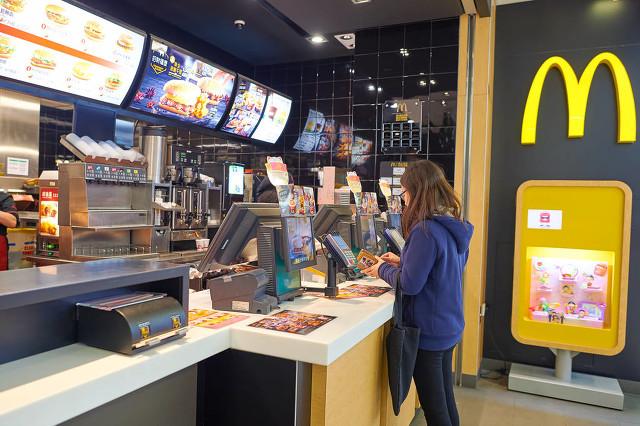
Lack of self-confidence is the root cause of these phenomena. Because some Chinese believe that everything in the West is the best, they are not rational to realize the American dream as their own responsibility, rather than more likely to realize their own Chinese dream. The Chinese people have ignored some of the dark side of the West, like psychological confirmation bias.
缺乏自信是导致这些现象的根本原因。因为某些中国人相信西方国家的一切都是最好的,他们因此不理智的以实现美国梦为己任,而不是更可能的去实现自己的中国梦。中国人忽略了一些西方的阴暗面,就像心理上的确认偏差。
Chinese people complain about food safety, but they can't see mad cow disease in the United States and hormone abuse in meat products; The Chinese complain about the gap between the rich and the poor, but they can't see the action of occupying Wall Street and so on.
中国人抱怨食品安全,却看不到美国的疯牛病以及肉制品的激素滥用;中国人抱怨有贫富差距,却看不到占领华尔街行动等等。
What's more, the Chinese people not only ignore some facts, but also criticize themselves without reason. For example, the 2008 Beijing Olympic Games and the 2010 Shanghai World Expo, the government invested heavily and created the best event in history. This is an excellent opportunity to improve China's national image on the international stage, which should bring confidence to the Chinese people. However, some Chinese people criticize the government for wasting money in useless places, and they hope that the government will use this money to solve the problem of the poor. They do not see that a better national image will bring more business opportunities, create more jobs and contribute to the long-term prosperity of the whole country.
更重要的是有些中国人不仅忽略一些事实,并且无理由的自我批判,比如2008年北京奥运会以及2010年上海世博会,政府大力投入资金并且打造了历史上最好的盛会,这是一个绝佳的在国际舞台上提升中国国家形象的机会,本应给中国人带来自信。可是有些中国人批评政府把钱浪费在没有用处的地方,他们更希望政府用这些钱去解决贫困人口问题。他们看不到一个更好的国家形象会带来更多的商机,创造更多的就业岗位,并且为整个国家的长期繁荣做出贡献。
There are many other things related to lack of confidence. I just want to talk about how lack of confidence negatively affects Chinese people and makes me feel sad. My answer is also to discuss the crisis of trust of the Chinese people.
还有很多事情都和缺乏自信相关,我只是想要大致谈论一下缺乏自信是如何消极的影响中国人,并且让我感到很悲伤。我的答案还想探讨一下中国人的信任危机。
I can't remember when Chinese people began to be afraid of talking with strangers. This was just the beginning. Later, patients did not believe in doctors, people did not believe in police, consumers did not believe in businesses, and so on. On the Internet, it is also difficult for people to reach an agreement. People do not discuss facts and ideas, but judge things according to personal preferences. If a person doesn't trust another person, even if he can't give an example of refutation, he won't listen to that person's opinion, and sometimes he will directly swear.
我已经记不清楚从何时开始中国人开始害怕与陌生人交谈。这仅仅是个开始,后来病人不相信医生,有人不相信警察,消费者不相信商家等等。在网上,人们也很难达成一致。人们不就事实与想法进行讨论,却根据个人的喜好来判断事情。假如一个人不相信另一个人,就算他自己举不出反驳的例子,也不会听从那个人的意见,有时候就直接破口大骂了。
The Peng Yu case pushed the trust crisis to the top. In 2006, Peng Yu picked up a fallen old lady in the street, but the old lady pointed out that she had hit her killer. Many people supported Peng Yu, but the judge finally believed that Peng Yu was guilty, because if Peng Yu had no responsibility, he would not help the old lady. Later, more Chinese elderly people sued those who helped them on the street. Some absurd events also followed, such as the elderly blackmail some pedestrians in the street. What is more sad than what happened in China?
彭宇案把信任危机推上了巅峰。2006年彭宇在街上扶起了一个倒下的老太太,结果被老太太指认为撞到她的凶手。很多人声援彭宇,但是法官最后还是认为彭宇有罪,因为彭宇如果没有责任就不会去扶起那个老太太。之后出现不少老年人起诉在大街上帮助他们的人。一些荒谬的事件也随之发生比如老年人在街上讹诈一些行人。还有什么比这些事情发生在中国更令人悲伤?
I'm sure some people will say that I wrote this answer with Chinese money. If I didn't collect money, how could I write so long. This is another form of trust crisis. Why can't I say what I really think?
我相信一些人肯定会说我写这个答案是收了中国的钱。如果我没有收钱,怎么会写这么长。这就是另一种形式的信任危机了,为什么我就不能说出我的真实想法呢?
Here, I feel that the lack of trust and the relationship between trust crisis and other answers are more like a vicious circle, and no one's answer is perfect. I hope my idea can help those who care about China and want to change China to think about it from another perspective.
写到这里,我感觉缺乏信任以及信任危机和其他答案的关系更像是一种恶性循环,没有人的答案是完美的。我希望我的想法能够帮助那些在乎中国并且想改变中国的人从另一个角度来思考问题。
Thank you for reading my answer. Welcome to share my answer with those you want to share. Let's create a better China together!
感谢你们看完我的答案,欢迎把我这篇答案分享给你想要分享的人。让我们一起创造一个更好的中国!

华裔网友韩福瑞的回答
I'm not sure if your question is only aimed at Chinese people born and raised in China, or decent people in China (they are another nationality), but I am a Chinese-American (born and raised in the United States) and have lived in China for several years, so my view may be a little different, but my view is as follows:
我不确定你的问题是否只针对在中国出生和长大的中国人,或者中国体面的人(他们是另一个国籍),但我是一名华裔美国人(在美国出生和长大),也在中国生活了几年,所以我的观点可能有点不同,但我的想法如下:
One thing saddens me most is the negative views of many people on contemporary China and Chinese people, especially Americans and other foreigners. I think this is partly due to the poor portrayal of China by the mainstream media in the United States and the general lack of understanding of China.
有一件事让我最难过,那就是许多人对当代中国和中国人,尤其是美国人和其他外国人的负面看法。我认为,这部分是因为美国主流媒体在描绘中国方面做得很差,而且对中国总体缺乏了解。
Almost everything we hear about China from public opinion is negative. For example, we have international solidarity with Cuba, Iran and Russia, so we support them instead of the United States. We are oppressed and poor. We eat dog meat and other strange things, especially "made in China". Everything is bad. These statements are ridiculous. Stereotypes must come from somewhere, so I'm not saying that these things don't exist, but that they are out of proportion.
我们从舆论中听到的关于中国的一切几乎都是负面的,比如我们在国际上声援古巴、伊朗和俄罗斯,因此我们支持他们而不是美国,我们是受压迫和贫穷的,我们吃狗肉和其他奇怪的东西,尤其是说“中国制造”的一切都很糟糕,这些言论太荒谬了。刻板印象必须来自某个地方,所以我并不是说这些东西不存在,而是说它们不成比例。
Yes, China supports Iran, Russia and Cuba, but we certainly do not support everything they do. Yes, the country is communist, but not all of us are under the so-called "oppression", and the country is really trying very hard to eradicate corruption. Yes, there may be a few people eating dogs somewhere in China, but I can assure you that most of us will not and may never eat dogs. Yes, China's economic situation is better than a few years ago, but its rise is also relatively calm. Yes, although products made in China may be cheaper in material and quality, not all things made in China are bad. However, you have never heard of anything more positive, such as how the Chinese government sent a team to Africa to help fight the Ebola epidemic.
是的,中国声援伊朗、俄罗斯、古巴,但我们当然不支持他们所做的每一件事。是的,国家是社会主义,但我们并不是所有人都受到所谓“压迫感”,国家也真的非常努力地试图铲除腐败。是的,在中国的某个地方可能会有少数人吃狗,但我可以向你保证,我们大多数人不会也可能永远不会吃狗。是的,中国的经济状况比几年前更好,但崛起也相对平静。是的,虽然中国制造的产品可能材料和质量更便宜,但并非所有中国制造的东西都是坏的。然而,你从来没有听说过更积极的事情,比如中国政府如何派遣一支团队前往非洲帮助抗击埃博拉疫情。
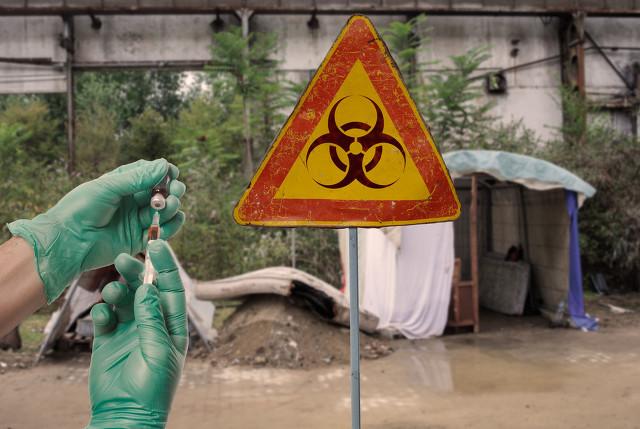
I am not saying that China is perfect, and I am not saying that what the American media (and other foreign media) say is rumor. However, many non-Chinese people's negative public opinion and their views on the Chinese people are heard in the media and gossip.
我不是说中国是完美的,我也不是说美国媒体(和其他外国媒体)所说的一切都是谣言。只是,很多非中国人的负面舆论和他们对中国人的看法都是从他们在媒体和八卦中听到的。
On the other hand, another thing that makes me sad is the impoliteness I often see when I live in China and among Chinese tourists and immigrants. In fact, Chinese people have a bad reputation because of their bad behavior; It is useless to coat with sugar. Damn, as a tourist visiting the Grand Palace in Bangkok in Thailand, I was taking a picture of a statue. A Chinese tourist was standing in front of me, deliberately blocking my view, so that his wife could take a picture of the statue without me in the way.
另一方面,另一件让我难过的事情是我在中国生活时以及中国游客和移民中经常看到的不礼貌。事实上,中国人因其不良行为而名声不佳;涂上糖衣是没有用的。见鬼,作为一名在泰国参观曼谷大皇宫的游客,我正在给一尊雕像拍照,一名中国游客正好站在我的面前,故意挡住我的视线,这样他的妻子就可以在没有我挡道的情况下拍到这尊雕像的照片。
I often encounter these examples of "bad behavior". Before you start throwing tomatoes and rotten eggs at me, let me say this: China has experienced many changes and hardships recently (think of the Western invasion, the Opium War, the Japanese invasion, the reform and opening up and so on), which has turned China from an ancient great country into an earth-shaking national time. The era of despair has created desperate people. People have to fight each other for basic necessities of life and learn how to save money and material. When you are in a country ravaged by war or famine, politeness is not your first task. What's more important is to find a way to settle down.
我经常遇到这些“坏行为”的例子。在你开始向我扔西红柿和烂鸡蛋之前,让我这样说:中国在最近经历了许多变化和苦难(想想西方入侵、鸦片战争、日本入侵、改革开放等等),这让中国从古代的大国变成了一个天翻地覆的国家时间。绝望的时代造就了绝望的人,人们不得不为了基本生活必需品而相互斗争,并学习如何节约金钱和物质。当你身处一个饱受战争蹂躏或饥荒折磨的国家时,礼貌并不是你的首要任务,更重要的是找到一种安身立命的方法。
In a sense, this is survival of the fittest. Many Chinese people who have experienced that era have passed on the same survival mentality to their descendants. I think this is one of the reasons for the "bad behavior" of Chinese people, such as pushing, talking loudly, and cultural insensitivity when traveling. This is a mentality of being pushed or pushed, fighting for food or starving, shouting or being drowned by the people around.
从某种意义上说,这是适者生存,许多经历过那个时代的中国人将同样的生存心态传递给了他们的后代。我认为这是导致中国人“不良行为”的原因之一,比如推搡、大声说话、,以及旅行时的文化不敏感,这是一种推或被推、为食物而战或挨饿的心态,大声喊叫或被周围的人淹没。
However, the situation is not so bad now. I know that the times are changing. Although there is still a lot of work to be done if we want to eliminate the bad reputation, and we still need to enforce it. Not all Chinese people are terrible and heartless; In fact, once you know many Chinese people, they are very generous and caring. They believe in strong family and loyal values, and are eager to lend a helping hand to friends in need. They may have bad habits and behavior. But I think that the new generation who have the opportunity to visit or study abroad must increasingly realize that many people in other parts of the world do not tolerate bad behavior. Obviously, I still don't agree with impoliteness, but it helps to understand why Chinese people behave like this. Their behavior is not out of malice, but out of their upbringing.
然而,现在情况并没有那么糟糕,我知道时代正在改变,尽管如果想要消除坏名声,仍有很多工作需要做,而且还需要强制执行。并不是所有的中国人都可怕无情;事实上,一旦你了解了很多中国人,他们都非常慷慨和关心。他们相信强大的家庭和忠诚价值观,并渴望向有需要的朋友伸出援手他们可能有不良的习惯和举止,但我认为,有机会出国访问或学习的新一代人肯定越来越意识到,世界上其他地方的许多人都不容忍不良的举止。显然,我仍然不赞成不礼貌,但这有助于理解为什么中国人会这样,他们的行为不是出于恶意,而是出于他们的教养方式。
I would also like to add that this makes me very sad, that is, many people tend to classify all Chinese people into one category, regardless of their background, which I must clarify, because many people do not understand this point. Many people's Chinese ancestors, including my own ancestors, migrated from China to other countries many years ago (the most famous are other Asian countries, such as Singapore, Malaysia, Indonesia, Thailand, and now the United States and Canada), and developed new cultural identities and values. Although some new first generation families continue to practice traditional Chinese values, for Chinese descendants living in these other countries for generations, we are different from "Chinese people from China" in many ways.
我还要补充一点,这让我很难过,那就是很多人倾向于把所有中国人都归为一类,不管他们的背景是什么,这是我必须澄清的,因为很多人不理解这一点。许多人的中国祖先,包括我自己的祖先,多年前从中国移民到其他国家(最著名的是其他亚洲国家,如新加坡、马来西亚、印度尼西亚、泰国,现在是美国和加拿大),并发展了新的文化身份、价值观等。尽管一些新的第一代家庭继续践行中国传统价值观,对于世代生活在这些其他国家的中国后裔来说,我们在很多方面都不同于“来自中国的中国人”。
Many Chinese who migrated to Southeast Asia several generations ago even changed or modified their names to integrate into any country where their ancestors settled. We may have some similarities, such as facial features, but we are different in many ways; The Chinese in Chinese Mainland are different from the Chinese in Indonesia, and the Chinese Singaporeans are different from the Chinese Americans. We are all Chinese descendants, but we are different in culture, lifestyle and language.
许多几代前移居东南亚的中国人甚至改变或修改了自己的名字,以融入他们祖先定居的任何国家。我们可能有某些相似之处,例如面部特征,但我们在很多方面不同;中国大陆的中国人和印尼的中国人不一样,华裔新加坡人和华裔美国人不一样。我们都是中国后裔,但我们在文化、生活方式和语言上有所不同。
Admittedly, we may be able to understand Chinese people in some way and find cultural similarities, but many people who were not born or raised in China do not think they are "Chinese Mainland people", so many foreigners tend to classify us as "Chinese Mainland people". Of course, this is not to say that we hate our motherland, and we are not ashamed of our ancestors - because we do not - but that we grew up in such different environments and cultures. Even if we return to China and try to live and integrate with local people, it will be very difficult.
诚然,我们或许能够以某种方式理解中国人,并找到文化上的相似之处,但许多不是在中国出生或长大的人并不认为自己是“中国大陆人”,因此许多外国人倾向于将我们都归为“中国大陆”。当然,这并不是说我们讨厌我们的祖国,我们也不为自己的祖先感到羞愧——因为我们没有——而是我们在如此不同的环境和文化中长大,即使我们回到中国并试图与当地人生活和融合,也会很困难。
It is very sad to see that many people in the world think that all Chinese people come directly from China, while China is just a huge homogeneous country. We are the same in terms of thinking, eating and appearance. In fact, it is a place with diverse races and people with different cultures and backgrounds.
看到世界上很多人认为所有中国人都是直接从中国来的,而中国只是一个巨大的同质国家,我们在思想、饮食和外表上都是一样的,而事实上,它是一个种族多样的地方,有着各种文化和不同背景的人,这是非常令人悲哀的。


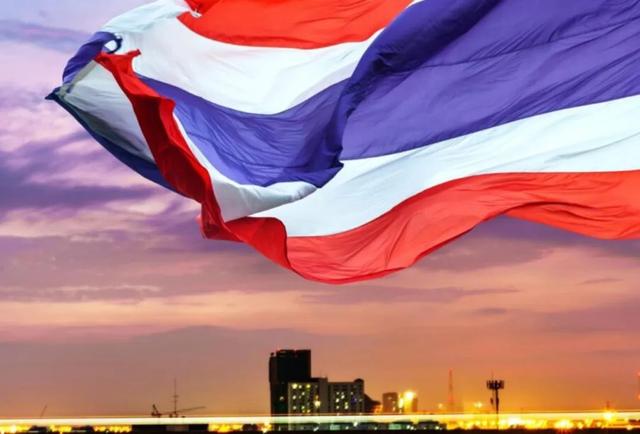






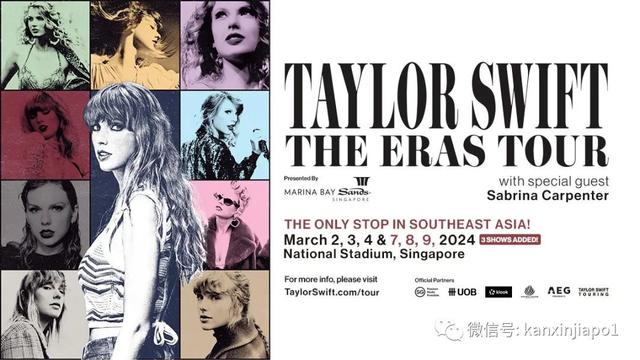
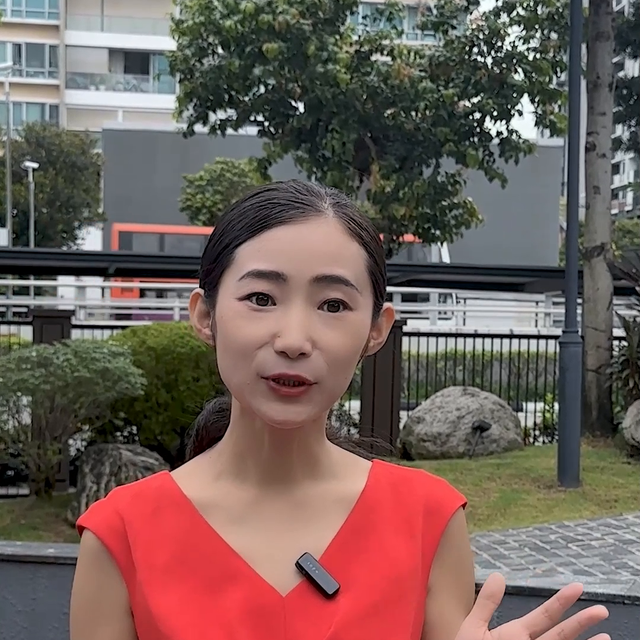
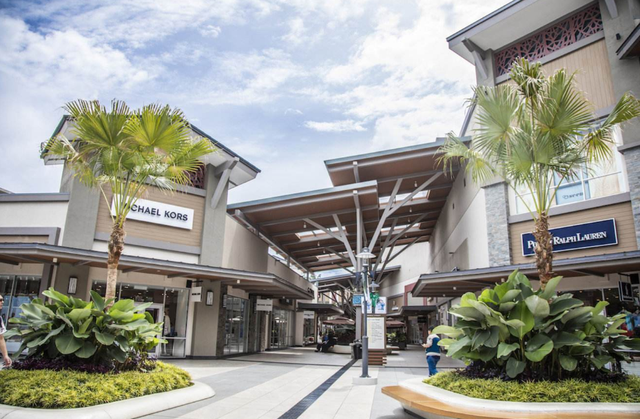










评论